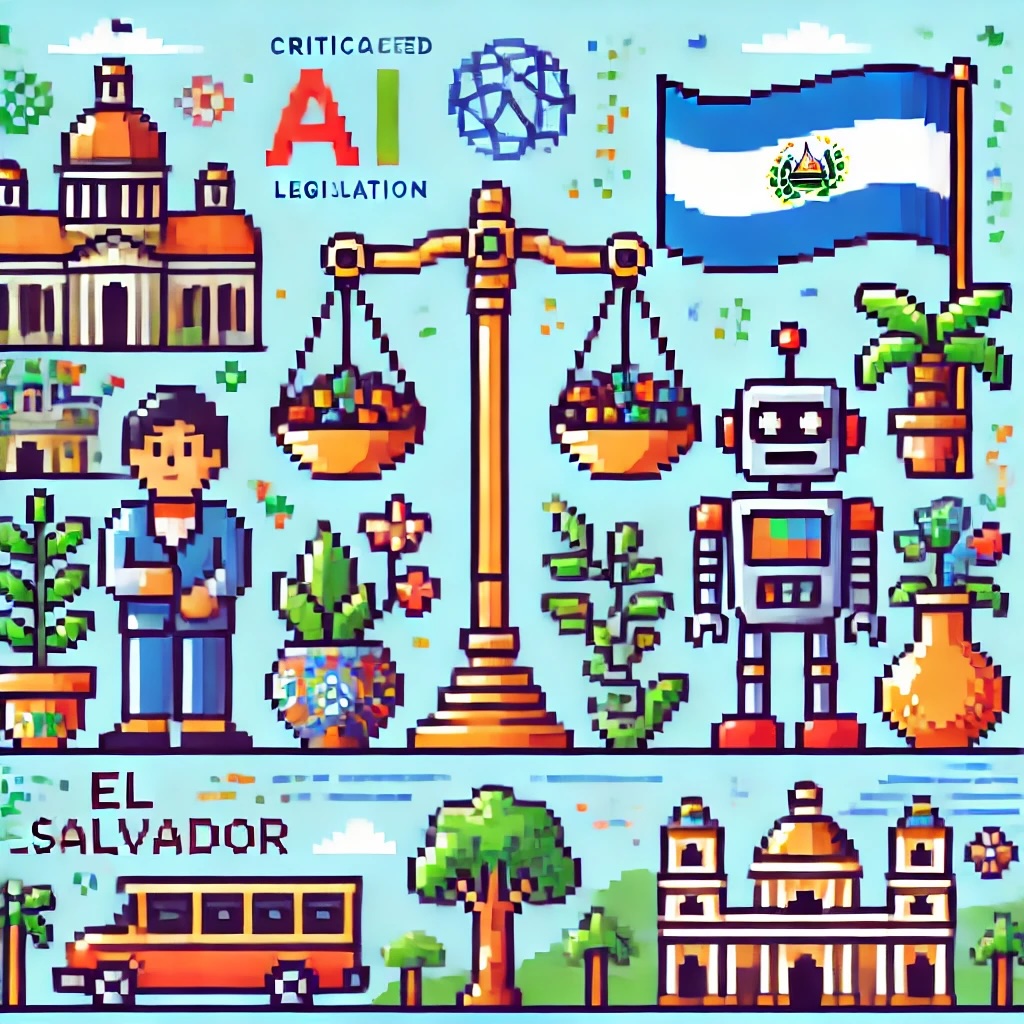
The Critical Need for AI Legislation in El Salvador: Ensuring Ethical and Innovative Growth
AI Integration and Future Plans
El Salvador has embarked on a remarkable journey of technological transformation under the leadership of President Nayib Bukele. Building on the momentum from its pioneering adoption of Bitcoin as legal tender, the nation is now setting its sights on integrating Artificial Intelligence (AI) into various sectors to foster innovation and growth. This article explores President Bukele’s vision for AI, the potential benefits and challenges, and the critical need for establishing robust AI legislation.
Government Vision for AI
President Bukele envisions a future where AI plays a central role in El Salvador’s development. In recent developments, he appointed Brian Roemmele, a renowned expert in voice technology and AI, as an AI advisor. Roemmele’s appointment highlights the government’s commitment to integrating AI to drive economic growth and educational opportunities, positioning El Salvador as a leader in the digital age[7][8][9].
Economic Growth: By fostering an environment conducive to AI innovation, El Salvador aims to attract tech companies and startups, thereby boosting economic growth and creating high-tech job opportunities.
Smart Governance: The integration of AI in government operations promises to enhance efficiency, transparency, and responsiveness, making public administration more effective and citizen-centric[28][30].
Global Competitiveness: Bukele’s vision includes positioning El Salvador as a leader in AI within Latin America, much like its pioneering role with Bitcoin. This involves not only adopting AI technologies but also setting standards that other countries can follow.
Potential Benefits and Challenges
The potential benefits of AI integration are immense:
Economic Benefits: AI can drive significant economic growth by improving productivity, fostering innovation, and creating new job sectors[28][30].
Social Benefits: AI can enhance the quality of life by improving healthcare, education, and public services, leading to a more inclusive and equitable society[27][29].
However, the challenges cannot be overlooked:
Ethical Concerns: Ensuring that AI systems are fair, transparent, and free from bias is crucial to prevent societal harm.
Data Privacy: Protecting the personal data of citizens is essential to maintain trust and prevent misuse.
Workforce Displacement: The transition to an AI-driven economy must be managed carefully to support workers displaced by automation through reskilling and education initiatives.
The Need for AI Legislation
To harness the full potential of AI while addressing its challenges, it is imperative to establish a comprehensive AI legal framework. This framework should cover several key areas:
1. Ethical Standards
- Transparency: AI developers must disclose methodologies and data sources to ensure clarity and trust.
- Accountability: Clear accountability mechanisms for AI decisions, especially in critical sectors like healthcare and finance.
- Fairness: Measures to prevent bias and ensure equitable treatment for all users of AI systems.
2. Data Protection
- Privacy Laws: Strengthened data privacy laws to safeguard citizens’ information.
- Consent: Ensuring individuals have control over their data, including the ability to opt-out of AI data processing.
3. Innovation Incentives
- Research Grants: Funding for AI research and development projects.
- Tax Breaks: Tax incentives for companies investing in AI technologies and infrastructure.
4. Workforce Transition
- Reskilling Programs: Programs to help workers displaced by AI acquire new skills and transition to new job opportunities in the AI sector.
- Education Initiatives: Integrating AI and digital literacy into the national education curriculum.
5. International Cooperation
- Standards Collaboration: Working with international bodies to adopt global AI standards and best practices.
- Regional Partnerships: Fostering regional cooperation in AI research and development.
Conclusion
El Salvador’s journey towards technological transformation continues with the integration of AI. By setting the rules for AI through robust legislation, El Salvador can ensure that it remains at the forefront of innovation in Latin America. The proposed AI legal framework not only addresses the ethical and practical challenges of AI but also positions the country as a leader in the digital future. As El Salvador charts this new course, the commitment to innovation and responsible governance will be key to its success.
This article outlines the government’s vision for AI in El Salvador, the potential benefits and challenges, and the critical need for AI legislation. It aims to inform and engage readers, encouraging them to support and contribute to the country’s digital future.
Related Articles
